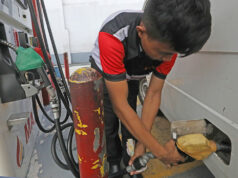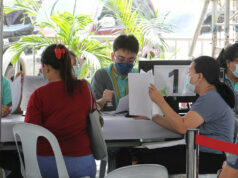Pagbilao project certified as ‘nationally significant’
ENERGY WORLD Corp. Ltd. (EWC) said its 650-megawatt (MW) power project in Pagbilao, Quezon was certified as an “energy project of national significance” by the Department of Energy (DoE).
Energy World is building the first liquefied natural gas (LNG) fired combined cycle gas turbine (CCGT) power station, which will be the anchor tenant of its Pagbilao LNG hub terminal.
“Confirmation that our project is of national significance shows the continued support from the Philippines Department of Energy at the highest level, and the project will now benefit from specific provisions set out in Executive Order (EO) 30, issued by President Rodrigo Roa Duterte to support important energy projects, which are deemed to help the development and security of the country, which were at risk of being delayed by excessive ‘red tape’ and to further enforce cooperation between various government agencies and franchise,” EWC told the Australian Securities Exchange on Nov. 28.
Under EO 30, energy projects of national significance will be allowed to go through a simplified regulatory permitting process.
EWC received the certificate, signed by Energy Secretary Alfonso G. Cusi, on Nov. 26.
The certification of national significance recognizes that the power plant will be the anchor off-taker of the LNG project, the company said.
EWC is developing the Philippines’ first LNG hub terminal, which consists of two full containment, onshore LNG tanks — each with a pumpable capacity of 130,000 cubic meters of LNG. It will also have a dedicated jetty and marine infrastructure to support LNG ships, as well as a regasification facility.
“We have always remained committed to bringing clean and affordable energy to the Philippines. This Certification of National significance from the DoE recognizes, in line with the concerns of President Duterte, that many important projects have been held up by issues which are beyond the developer’s control. We appreciate the continued support from the DoE while we work to bring this project to commercial operation,” EWC Chief Executive Officer and Managing Director Stewart Elliott was quoted as saying in the statement.
The DoE has been trying to encourage proponents of an LNG import terminal ahead of the expected depletion of the Malampaya gas-to-power project starting in 2024.
Natural gas, said to be the cleanest fossil fuel, is usually transported through a pipeline, but if the deposit is large and the market is overseas, the gas may be liquefied for ease of shipping and moved via specialized tankers. Imported LNG is then regasified or reverted to its former state in the country of destination.



